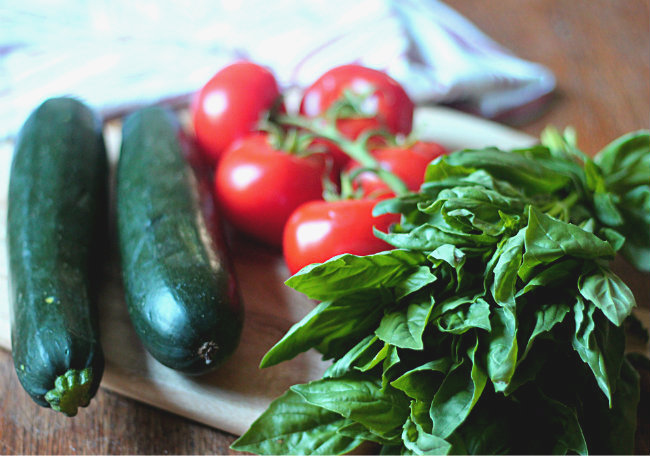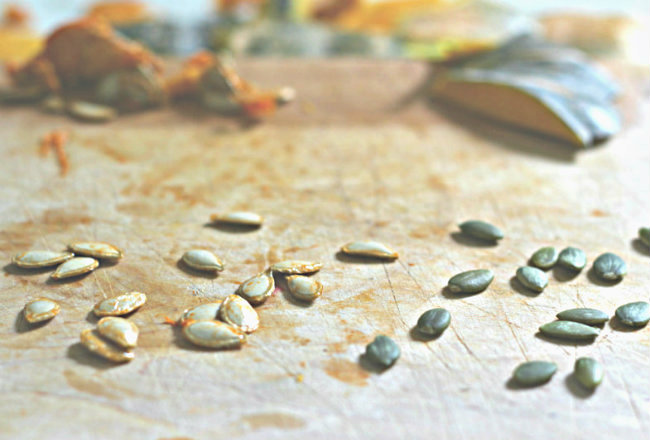
I often get asked what type of “diet” I follow. I always find this a hard question to answer – mostly because I don’t feel I subscribe to any one particular diet or way of eating.
I also don’t like labels – I feel that dietary-related labels tend to define and limit you to one particular preconceived idea. To give a little context to what I eat and why, I thought it may be best to explain where I’ve come from and how my eating has changed over the years.
Growing up, I ate what I would call a very typical Australian diet.
Dinner would often be meat and three veg or a BBQ with salad in summer – not too unhealthy in itself, but we’d often go crazy on the mashed spud (potato), scrimp on the veggies and finish it off with a bowl of icecream. Breakfast was always cereal – the sugar-covered stuff if we were lucky, or Weet-bix (whole grain wheat biscuits) if Mum had her way. The benefits of this healthier alternative were soon lost though when I’d coat my whole wheat biscuits in upt to 6 teaspoons of sugar (!!) Lunch was usually a sandwich on sliced white bread with a few veggies though mostly processed meat and cheese, and snacks were sometimes fruit, but often biscuits, heavily processed cheese or chips.
As I got older, my diet got worse. After school snacks used to include toasted cheese and ham sandwiches or cheesey nachos, and my sweet toothprogressively got worse – I could easily eat a whole block of chocolate in one setting if I got the chance (!!)
When I was 15 I stopped eating meat. I didn’t eat seafood at this point either, so technically I became a vegetarian. I always felt a little uncomfortable with the term however and prefer to say “I don’t eat meat” than “I’m vegetarian”. Once again, I felt uncomfortable with the label – it seemed to come loaded with judgement and preconceived ideas about my diet – “you probably have low iron”, and “but where do you get our protein!?” There also seems to be an often somewhat misinformed idea that vegetarians are intrinsically healthy, which isn’t always the case. And I will be the first to state – my diet at this time was not at all healthy (nor were my motives for not eating meat based on health-related reasons). And despite its name, my vegetarian diet didn’t really include many vegetables.
In the following years, I started to become more interested in cooking and preparing healthier meals however the one unhealthy habit I struggled to kick was my sugar addiction. Subsequently, I often had low energy (which I would try to counteract by consuming more sugar, only to crash a few hours later and have to repeat – a viscious cycle!) I was moody, struggled to concentrate and apply myself and I had a lot of difficulty sleeping at night.
Towards the end of 2012 however, I managed to “quit” sugar and through doing this, I also started to look at the rest of my diet. I realised that what I thought was “healthy” was actually processed ‘fake’ food that wasn’t nourishing my body the way it should be. I consciously decided to start eating more plant-based foods. Whole foods. Foods that would provide my body with the nutrients it needed to function. And since doing this and focusing on eating this type of food, I’ve notice that this is the food my body craves.
The more vegetables I eat, the more vegetables I WANT to eat.
So am I vegetarian? The large bulk of what I consume is vegetables, supplemented with some fruit (dependent on whats in season), nuts, seeds, whole-grains and legumes. I do consume some dairy occasionally, although I consciously try to limit it, and I also eat organic free-range eggs. However, from time to time I do eat seafood – mostly fish – so by definition I am not vegetarian. That said, I usually prefer to eat a vegetarian dish when dining out – for example, we eat a bit of Indian and I always get the vegetarian curries, I would much prefer them to the fish curries.

There is a preconceived idea that those that follow a plant-based diet, and eat little – if any – animal products do not get enough protein, iron or calcium. Though I do include some animal products in my diet, I still find this thinking a little ill-informed.
We do not need animal products to be healthy and lead healthy lives.
If you think about the diet of some of the strongest animals in nature – cattle, elephants, rhinoceros, hippopotamus – they are all herbivores. They exist mostly on plants.
Plants – namely vegetables, fruit and their products – are so nutritionally dense that studies have been able to show that humans can also exist solely on a plant-based diet (source).
Plant-based diets have many benefits – personally, I’ve noticed that I have a lot more energy, I’m not as lethargic and I generally feel healthier. I also haven’t had even the slightest cold in close to a year despite numerous lurgies passing through our office, which I feel is directly related to my diet and the amount of vegetables I eat (along with taking daily probiotics). This isn’t to say however that this is a result of not eating meat, but I definitely find it is attributable to the large amount of unprocessed and plant-based foods I eat on a daily basis – certainly, as soon as my diet changes and I start to have more processed “treats” and less veggies, I can tell the difference in how I am feeling.
I strongly believe that in order to lead a healthy life, we need to listen to our bodies and eat what our body is telling us to eat. This differs from person to person, from place to place. Some people may need meat protein whilst others flourish on a vegan lifestyle; some may need more carbs than what others require; and dietary requirements can also change over time for each person as well. However we all need plants – vegetables – in our diet to fully nourish us. And unfortunately, most of us do not get the amount of vegetables that we need to each day.
There is also a common misconception that a plant-based diet is boring.
People think salads and not a lot of variation or options. However, eating a plant based diet does not have to be boring. The more I experiment, the more I become fascinated with just how versatile vegetables are. You can use them as rice, or pasta or even pizza dough. They can be added to smoothies, or hidden in chocolate pudding. Cooked and mashed vegetables can easily be stirred through sweet foods such as porridge, pancakes, cookies and cake.
Do you also follow a plant-based diet? How do you make sure you get more veggies into your diet? I’d love to hear from you!
This is a perfect description of my diet too! I hate labels (and preconceived ideas that come with them) and find that listening to your body is the best thing to do
I eat a mainly plant based diet with eggs, a little fish and occasionally some organic meat. I hate labels too! Truth is that I just love vegetables and plant based meals now – I crave them. Every so often I also crave fish or beef but thats about it. Everyone functions best of different diets and it is about finding what works for you :)
I too hate putting a label to my diet. Yeah, I eat mostly plant-based, but I also adore eggs and dairy. And I cannot go without fish for dinner! But I mostly eat all veggies and legumes, which is what works best for me!
I loved the post, Dearna. I like the way you think! And also, I cannot wait to see all those new recipes :)
I loved reading your story and your thoughts about our veg-centric diets and debunking the misconceptions. Perfectly said!